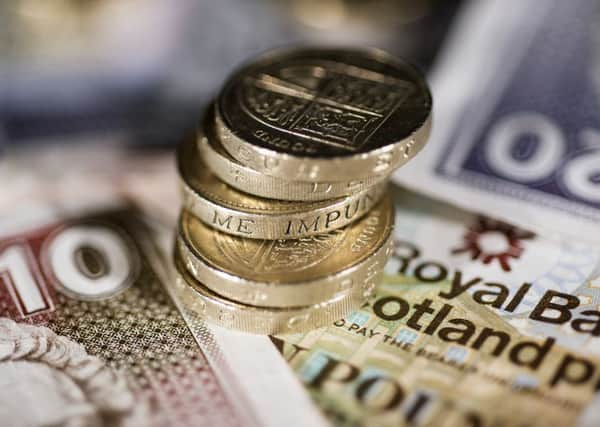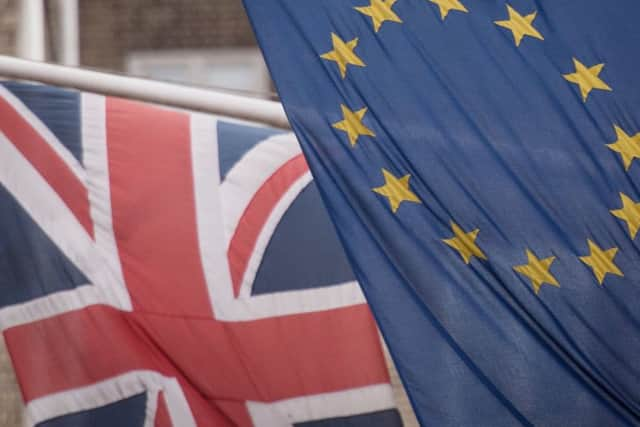Indyref2: What would a separate Scotland's deficit really be?


While issues of identity and the looming spectre of how the UK will look post-Brexit will be important, it is the pound (or other currency) in your pocket that will inform the decision of most Scots.
Nicola Sturgeon’s predecessor Alex Salmond was criticised for not properly addressing the issue of Scotland’s public sector deficit during the 2014 campaign.
Advertisement
Hide AdAdvertisement
Hide AdMany people believe it was a fear of Scotland’s less than advantageous starting position following independence that resulted in the 55 – 45 win for the No campaign.


Two-and-a-half years on, many Scots will still wonder whether the SNP has answered the questions on Scotland’s deficit.
With that in mind, we attempt to make sense of this crucial dividing line.
Gers Figures - What and Why?
The Government Expenditure and Revenue Scotland report is an annual look at the headline figures of Scotland’s financial position.


In political and practical terms, this means that we get a yearly figure on exactly what Scotland’s deficit is, relative to the rest of the UK.
Deficit is the difference between the income of the Scottish Government, and the amount it spends on providing services and other public expenditure.
Normally published in March, the 2015/16 figures were controversially brought forward to August of last year.
At the height of the Holyrood recess, Scottish ministers didn’t have to rush to the dispatch box as opposition politicians claimed the data left their independence dream in tatters.


Headline numbers
Advertisement
Hide AdAdvertisement
Hide AdThe numbers in the last GERS release gave some credence to the theory that SNP ministers were keen to ‘bury bad news’.
Scotland’s deficit in that period was £12.6bn including oil revenues, which amounts to 8.l% of our Gross Domestic Product (GDP).
The UK’s deficit in the equivalent period was much better by comparison, at 2.2% of GDP.


Scotland’s deficit in the most recent period was nearly as bad as it was at the height of the global financial crisis of 2009-10.
The Experts
Strathclyde University’s independent Fraser of Allander Institute concluded at the time that while on the whole the independence picture wasn’t changed on one set of figures, it made grim reading for those who claim a separate Scotland would start off life with a rosy economic outlook.
Their stark analysis read: “It is simply not possible to operate under independence with a deficit on this scale on a consistent basis – full stop.”
FAI experts also wrote: “With a weakening offshore sector (which pays higher wages than average) combined with a relatively more quickly ageing population, Scotland may find it harder to maintain per capita rates of tax revenue growth relative to the UK in forthcoming years.
They did conclude, however, that the GERS figures currently examine Scotland as a component of the UK, where many important decisions are made, so as such there are unknowns as to how these figures would look within a completely new country making its own decisions.
The Brexit Factor
Advertisement
Hide AdAdvertisement
Hide AdThere are also those who suggest that the GERS figures could in the future be impacted by an economic shock due to Brexit.
The UK’s decision to leave the EU has been met with stark warnings about how trade will flow with some of our biggest partners, and Scotland is no exception.
It is doubtful this would be a massive factor in terms of Scotland’s starting deficit, as even the most strident of independence supporters would concede that Scotland won’t leave the UK until the UK leaves the EU.
The pro-indy response
Only the most ardent, and fringe, SNP politician would go as far as to doubt the facts contained within the GERS report.
That isn’t to say that they simply roll over and accept the theoretically grim picture of an independent Scotland’s finances.
Nicola Sturgeon said that Scotland was not unique in facing difficult economic circumstances, and disputed that GERS blew a significant hole in her independence dream.
Others contend that any poor figures on Scotland’s economy are just another sign of long term trends showing that being part of the UK is what damages Scotland, rather than something that aids the country.